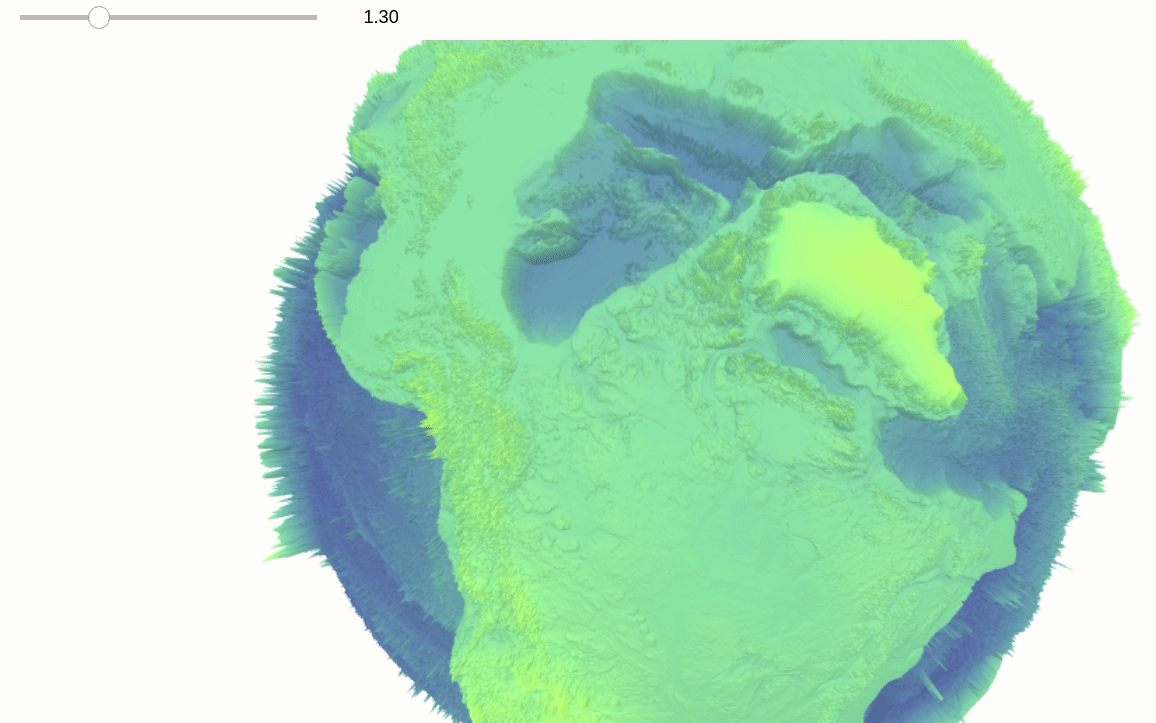WarpByScalar¶
The WarpByScalar widget will modify the mesh geometry.
It is similar to Paraview, PyVista and vtk’s warp-by-scalar effect, but instead of computing the transformation on the CPU,
it is entirely computed on the GPU. Which means that changing the warp factor does not involve looping over the mesh vertices,
we only send the new factor value to the GPU.
The input attribute should be a 1-D data. For example, if your mesh has a 1-D Data named "height", your can set the input to be:
warped_mesh = WarpByScalar(mesh, input='height') # Warp by 'height' data
Examples¶
from pyvista import examples
import numpy as np
from ipywidgets import VBox, FloatSlider
from ipygany import PolyMesh, Scene, IsoColor, WarpByScalar
pvmesh = examples.download_topo_global()
ugrid = pvmesh.cast_to_unstructured_grid()
from ipygany import PolyMesh, Scene, IsoColor, WarpByScalar
# Turn the PyVista mesh into a PolyMesh
mesh = PolyMesh.from_vtk(ugrid)
colored_mesh = IsoColor(mesh, min=-10421.0, max=6527.0)
warped_mesh = WarpByScalar(colored_mesh, input='altitude', factor=0.5e-5)
# Link a slider to the warp value
warp_slider = FloatSlider(min=0., max=5., value=0.5)
def on_slider_change(change):
warped_mesh.factor = change['new'] * 1e-5
warp_slider.observe(on_slider_change, 'value')
VBox((warp_slider, Scene([warped_mesh])))
